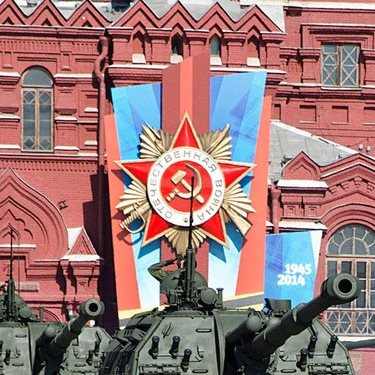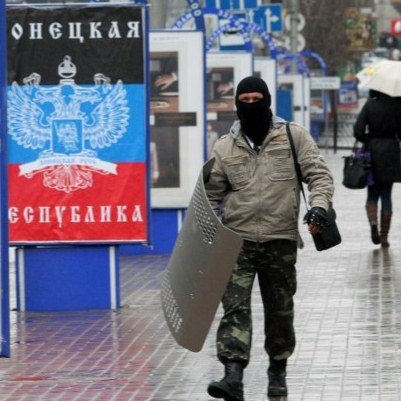(The New York Times) MOSCOW — As many Russians spent a holiday weekend reveling in the annual display of military might that marks their victory over Nazi Germany, the tension in Ukraine has fueled a passionate debate over how to exalt the country’s history without distorting it.
The issue took on greater urgency with a new law, signed last week by President Vladimir V. Putin, that mandates up to five years in jail and heavy fines for anyone who tries to rehabilitate Nazism or denigrate Russia’s World War II record.
The Kremlin has long enshrined the history of the war against Hitler as a heroic, collective victory. But skeptics argue that the victory itself is too often used to promote what they consider an excessive obsession with fascism abroad — vividly played out over the past two months in lurid coverage on Russian state television of the Ukraine crisis. […]
Historians objected to the fact that the law she introduced penalizes anyone who distorts the Soviet role in defeating Nazism, contains vague terminology, and criminalizes things like “the desecration of symbols of Russia’s military glory,” without defining what the terms mean. It makes no mention of how distortions would be determined.
“The law is not about Nazism, it is about establishing an historical canon, a historical narrative written by the state,” said Ivan I. Kurilla, a historian at Volgograd State University. “It would criminalize historical research.”
See the full article "Russia Revisits Its History to Nail Down Its Future" by Neil MacFarquhar
© The New York Times











